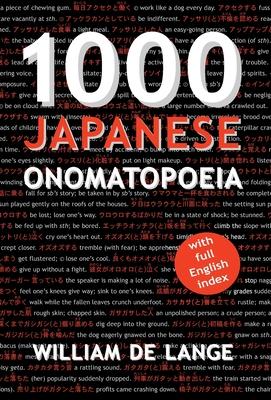To any student of the Japanese language, the staggering number of onomatopoeia seems so daunting that one simply does not know where to begin. What, for instance, to make of karakara, karikari, kurikuri, or korikori? They may sound pretty similar, but they carry a wealth of information, modulated by emphasis, context, and grammatical function. Thus karakara alone can be used to describe someone laughing loudly, a vehicle rattling along, being parched with thirst, or being out of money.
This is the first comprehensive dictionary of Japanese onomatopoeia. Multiple English sample sentences highlight every meaning and nuance of expressions used by Japanese speakers of all walks of life--from hip youths in Roppongi to erudite professors at university.
